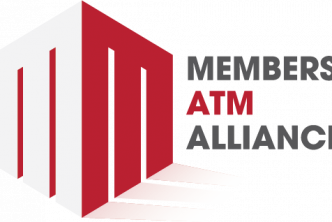By Richard Miller
Senior Executive Vice President of Sales
JOHN M. FLOYD & ASSOCIATES
As the New Year begins, we’re headed into a new decade that promises opportunities and challenges for both financial institutions and consumers. As you prepare for what lies ahead in 2020, don’t overlook the following overdraft program strategies that can catapult your performance results.
- Safeguard members with your commitment to service
Technology and innovation are at the forefront of forward-thinking strategies designed to meet service expectations and help credit unions remain competitive in the future. But it’s important to make sure the programs offered are designed to effectively address your members’ most pressing financial needs and enhance your staff’s ability to provide exceptional service experiences.
According to the 2019 Financial Health Network Trends Report, fewer than one in three Americans—29%—are financially healthy. Despite another year of strong economic growth, does your membership include those who may need help dealing with an imbalance in their financial footing due to unexpected health issues, job losses or other emergency expenses?
These examples underscore how a fully disclosed overdraft service can be a game-changing safety net for members who experience a shortfall. And, when paired with counseling and services that encourage saving and budgeting, your overdraft strategy can enhance the relationship you have with members by demonstrating your commitment to serving all their banking needs—in good times and bad.
- Don’t leave compliance to chance
Regulators are expected to maintain their focus on a number of issues in 2020. For its part, the Consumer Financial Protection Bureau is carefully reviewing the comments it sought and received—as part of its first-ever 610 RFA rule review—regarding the impact the 2009 Reg E amendment had on small banks and credit unions. This is part of the analysis the Bureau required to support its determination of whether the rule should be continued without change, amended or rescinded.
You can avoid unnecessary regulatory concerns and the threat of class action risk by partnering with an overdraft program expert that offers a fully transparent strategy. On-going guidance regarding regulatory changes, a 100% written compliance guarantee and advice on effective member communications will help to ensure that your credit union is meeting all compliance requirements.
- Get serious about improving your data quality
Banks and credit unions worry a lot about staying competitive when it comes to technology and data. According to PWC, financial institutions have more data on their account holders than anyone else. But they still struggle to extract meaningful information and use it for good business decisions. By some estimates, businesses use only 0.5% of available data.
Next generation software with automation provides reliable, comprehensive analytics and up-to-date reporting capabilities that greatly improve your overdraft program management. In addition to increasing your ability to monitor program results, it enables you to gauge member account activity, spot potential problems and anticipate when to implement changes to improve the service experience—as well as your bottom line. Access to real-time program data is also an effective way to ensure compliance issues are identified and dealt with in a timely manner.
- Energize your training strategy
Confident, informed employees are the key ingredients to creating exceptional member experiences involving the products, services and technical capabilities your credit union offers. But, too often, training takes a back seat when it comes to setting priorities.
An effective employee training approach can bridge knowledge gaps related to your overdraft program—from the basics to best practices. More importantly, it can help identify any misunderstanding about the value the service provides to members and improve employee confidence—both of which could impact your program’s performance and compliance.
And finally, a comprehensive training strategy that includes on-site, online and off-site opportunities supports the different learning styles and work schedules of your staff members.
No matter how long your employees have been doing their jobs, it’s important to provide them with recurring opportunities to focus on such issues as: the importance of providing members with a reliable safety net; how a fully compliant overdraft program works and how to communicate effectively. Not only does such guidance benefit employees professionally, it improves morale, creates an environment in which your members feel more comfortable coming to you for financial advice and, in the long run, improves your credit union’s performance.
With competition heating up from fintech companies and an increased consumer reliance on digital capabilities, the new decade promises to bring monumental change for our industry. Nonetheless, consumers will still be faced with emergencies and situations that put them in a financial bind from time to time.
Credit unions that continue to build relationships with their members—through service-focused strategies, well-trained employees and a compliance-guaranteed, next generation overdraft solution— can solidify their reputation as a provider of strong, consistent products and services to succeed into the new decade and beyond.






